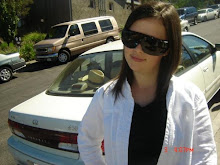"You are opening a Pandora's box."
Marton was warned when she filed for her family's secret police files in Budapest. But her family history -- during both the Nazi and the Communist periods -- was too full of shadows. The files revealed terrifying truths: secret love affairs, betrayals inside the family circle, torture and brutalities alongside acts of stunning courage -- and, above all, deep family love. In this true-life thriller, Kati Marton, an accomplished journalist, exposes the cruel mechanics of the Communist Terror State, using the secret police files on her journalist parents as well as dozens of interviews that reveal how her family was spied on and betrayed by friends and colleagues, and even their children's baby-sitter. In this moving and brave memoir, Marton searches for and finds her parents, and love. Marton relates her eyewitness account of her mother's and father's arrests in Cold War Budapest and the terrible separation that followed. She describes the pain her parents endured in prison - isolated from each other and their children. She reveals the secret war between Washington and Moscow, in which Marton and her family were pawns in a much larger game. By the acclaimed author of The Great Escape, Enemies of the People is a tour de force, an important work of history as it was lived, a narrative of multiple betrayals on both sides of the Cold War that ends with triumph and a new beginning in America.
Plot summary lifted from the book jacket. Colin typed it up for me because he can't stand my hunt-and-peck typing.
First, let me get the negatives out of the way. In my experience, expectations have an enormous effect on your enjoyment of a book. For some reason, I was expecting to be riveted while reading Enemies of the People. While this book is interesting, I wasn't riveted and that made me feel like it wasn't as good as I thought it would be. The subject matter and the way that Marton chose to write about it was a bit dryer than I expected. You hear about secret police investigating and arresting journalists and you expect suspense and intrigue. In actuality, the surveillance of the Martons must have been tedious for the state. It doesn't seem like very much is happening. And Kati made extensive use of her research, quoting from informants and reports in the files. I can see why she made this choice -- the book is in essence a result of this journey to uncover what the files contained. And those contents are extraordinary, but I felt a bit mired down in the excerpts at times.
In the end, the positives definitely outweigh the negatives. What happened to Kati Marton and her family almost seems like fiction; the fact that it's all true and the evidence is right in front of us is incredible. I appreciated Marton's sense of humor and her willingness to share how her past has shaped her life -- that is to say, the past as she knew it and the past as she now knows it. The most valuable part of the book for me is the very clear sense you get of the atmosphere in Hungary at the time. Marton relates the day-to-day life in a police state eloquently, making the unimaginable imaginable. If you're at all interested in this time period or subject matter, I recommend you give this book a try.
Here's a clip of Marton's appearance on The Colbert Report. It's very entertaining, even if you're not a Colbert fan.
| The Colbert Report | Mon - Thurs 11:30pm / 10:30c | |||
| Kati Marton | ||||
| ||||
(I especially like the part when Marton calls her baby-sitter a bitch.)



No comments:
Post a Comment